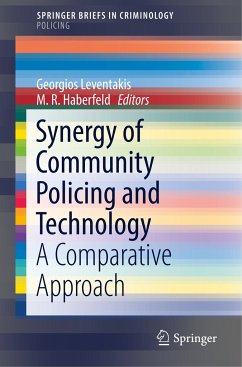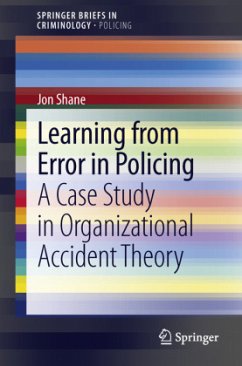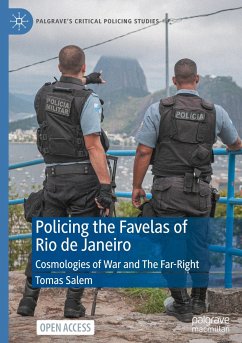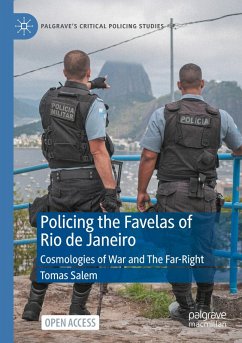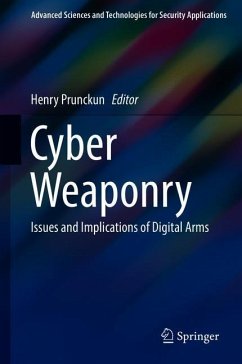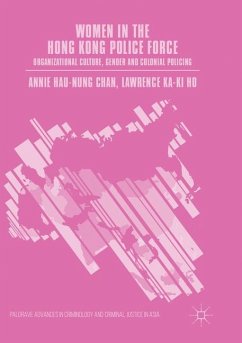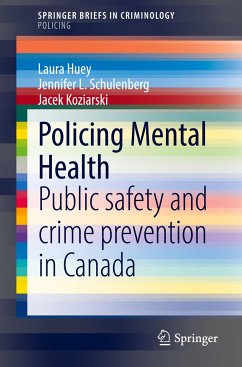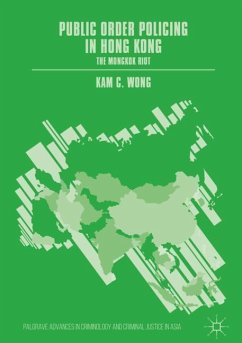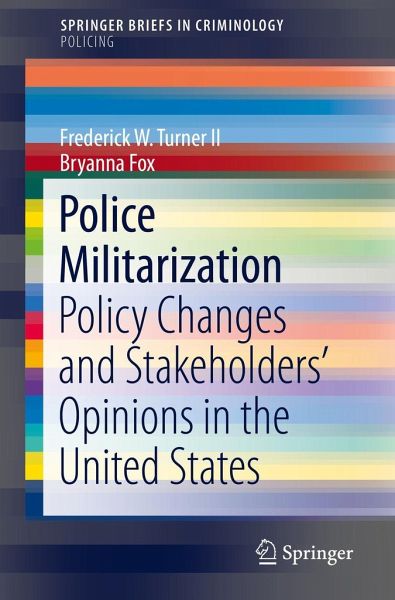
Police Militarization
Policy Changes and Stakeholders' Opinions in the United States

PAYBACK Punkte
19 °P sammeln!
This Brief examines the "militarization" of law enforcement in the United States through the lens of the stakeholders primarily responsible for implementing, funding, and enacting the practice. Largely a result of policies such as the war on drugs, war on terror, and the 1033 program, there has been a gradual but dramatic rise in the use of military-grade weapons, equipment, and tactics used by police agencies across the United States. This Brief examines the level of support for various aspects of police militarization by lawmakers, police executives, and local police officers, and how their ...
This Brief examines the "militarization" of law enforcement in the United States through the lens of the stakeholders primarily responsible for implementing, funding, and enacting the practice. Largely a result of policies such as the war on drugs, war on terror, and the 1033 program, there has been a gradual but dramatic rise in the use of military-grade weapons, equipment, and tactics used by police agencies across the United States. This Brief examines the level of support for various aspects of police militarization by lawmakers, police executives, and local police officers, and how their opinions may differ based upon their current position or demographic features using a series of analyses and propensity score matching techniques.
This Brief also provides an overview of some of the key policy changes responsible for police militarization, and provides insights into the views held by policymakers and law enforcement on various aspects of the practice. The resultsindicate that while many responsible for this shift are in favor of paramilitary procurement programs, there are differing opinions on key issues such as oversight and use of military-grade weapons, equipment and paramilitary tactics.
This work will be of interest to researchers in criminology and criminal justice, particularly those with an interest in policing studies, as well as related fields such as public policy, public administration, emergency management, and sociology.
This Brief also provides an overview of some of the key policy changes responsible for police militarization, and provides insights into the views held by policymakers and law enforcement on various aspects of the practice. The resultsindicate that while many responsible for this shift are in favor of paramilitary procurement programs, there are differing opinions on key issues such as oversight and use of military-grade weapons, equipment and paramilitary tactics.
This work will be of interest to researchers in criminology and criminal justice, particularly those with an interest in policing studies, as well as related fields such as public policy, public administration, emergency management, and sociology.





